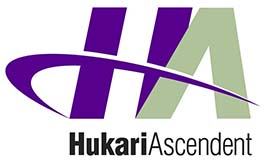Criticality Safety Engineering
HukariAscendent has opportunities for all levels of employment within these services – entry, junior to senior. HukariAscendent provides in-house recruiting, staffing, program and project management, human resources, finance and accounting, and contract administration in support of several large staff augmentation contracts. HukariAscendent currently holds active contracts with several DOE Prime Contractors, providing a broad range of staff augmentation support, including, but not limited to:
Criticality Safety Engineering
HukariAscendent has been supplying technical consulting and engineering service personnel since 1999 to government and commercial projects. HukariAscendent personnel have the experience and expertise to support nuclear projects from inception through construction, operation, and decommissioning at laboratories, fissile material processing facilities, chemical reprocessing, enrichment, and storage facilities. A criticality event occurs when a sufficient amount of fissile material (such as enriched uranium or plutonium) is brought together under suitable conditions to sustain a self-sustaining nuclear chain reaction. Criticality safety engineering is a specialized field within nuclear engineering concerned with preventing accidental nuclear chain reactions, specifically those leading to a criticality event, design and placement of criticality alarm systems to warn personnel of accident conditions, and optimizing fissile materials to sustain desired critical events. The company provides seasoned criticality safety engineers to multiple projects within the government and commercial nuclear industry.
Project Criticality Safety Engineering – HukariAscendent provides support for all the key aspects of program management:
Criticality safety engineers design systems, equipment, and facilities to prevent inadvertent criticality events. They analyze configurations, materials and processes to ensure the probability of inadvertent criticality events are minimized and desired criticality events (e.g. nuclear fuels) will occur safely and reliably.
HukariAscendent has criticality safety engineers well versed in developing safety controls such as geometric barriers, neutron absorbers, volume controls, and administrative controls that may include spacing, limiting water or reflecting materials to prevent criticality. Controls are designed to maintain subcritical conditions under abnormal conditions. Criticality safety analysis requires strict adherence to regulations and guidelines established by DOE, NRC and expert bodies such as ANSI/ANS.
Engineers conduct thorough risk assessments to identify potential criticality hazards and evaluate the effectiveness of safety measures. This includes analyzing multiple scenarios, modeling potential consequences using codes such as Monte Carlo N-Particle-k code(MCNP and other codes such as SCALE ORIGEN, microshield).
HukariAscendent criticality safety engineers develop and teach coursework in the areas of neutronics, kinetics, and nuclear criticality safety hand calculation methods to support qualification of criticality safety engineers and develop and teach criticality safety training to qualify fissile material handlers and awareness training for others that will be in areas with fissile material. Proper training is essential for understanding the risks associated with criticality and implementing appropriate safety measures.
The HukariAscendent resource base includes personnel who can support successful, timely interaction with program and project staff at all levels. Related experience of our resources includes development of program and project management plans, risk ranking methodologies, development of procedures, plans, training, schedules, budgets, and risk management and risk mitigation plans.
Project Criticality Safety Engineering Products – Examples of typical work products include:
- Criticality Accident Alarm System Design and Detector Placement
- Nuclear Criticality Safety Evaluation
- Criticality Safety Limits and Postings
- Assessments
- Criticality Incredibility Evaluation
- Criticality Experiment Design
- Fuel and fissile material packaging and transportation systems
- Criticality Program and Policy
- Criticality IROFS
- criticality safety evaluations and calculations
- Shielding Design
- Equipment Specifications
By the numbers:
- Executed 49 contracts for Criticality Safety Engineering services.
- Performed more than $72M Criticality Safety Engineering contracts for 28 companies at 17 sites/projects.
- Hukari has19 years providing Criticality Safety Engineering services.
- Criticality Safety Engineering employees average 25 years’ experience.
HukariAscendent is an Equal Opportunity/Affirmative Action Employer. All qualified applicants receive consideration for employment without regard to age, disability, race, color, religion, creed, national origin, sex, marital status, sexual orientation, veteran or military status including disabled veterans and Vietnam era veterans, or other protected status.
HukariAscendent maintains a drug-free workplace.
For questions or if you need accommodation in the application process, please contact HukariAscendent Recruiting at (303) 384-9079.

